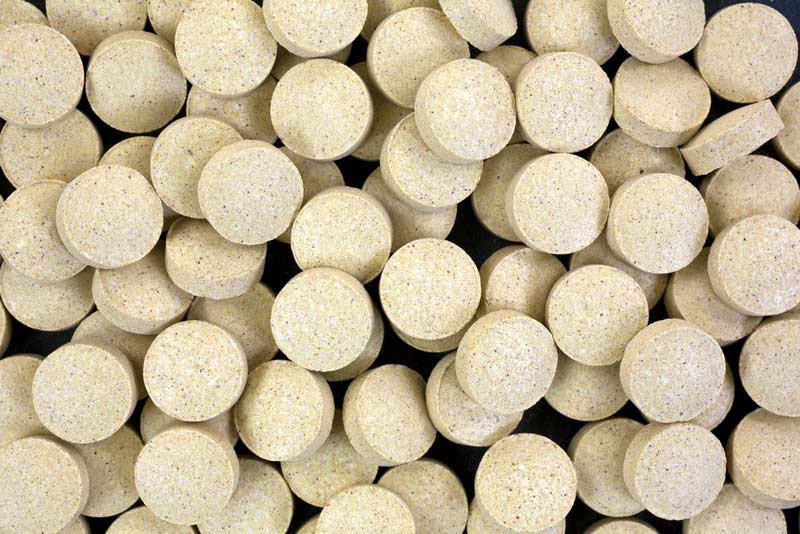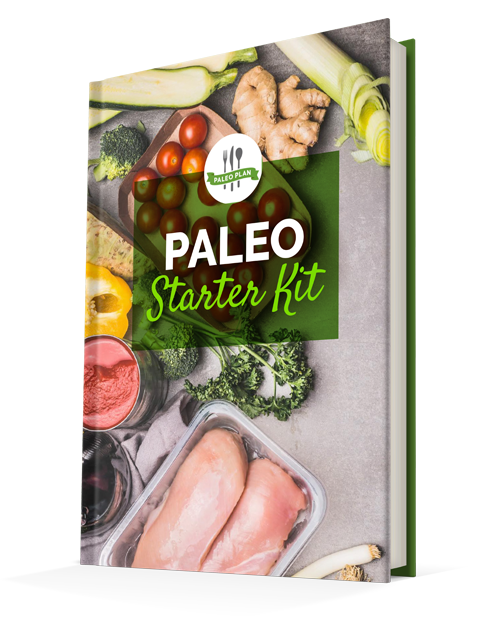
Selenium is an antioxidant-rich essential trace mineral that works with other enzymes and proteins that are involved in many antioxidant enzyme pathways. It is estimated that up to one billion people worldwide suffer from selenium deficiency. Selenium is found in foods such as Brazil nuts, garlic and tuna.
This key mineral is essential for our bodies and plays a role in reproduction, DNA synthesis and protection from free radical damage.
In particular, selenoprotein S is involved in the protection against cellular stress and regulating the release of pro-inflammatory cytokine release. Having adequate selenium levels is essential for not only proper immune function, but also for regulating excessive immune response and chronic inflammation. (1)
Signs of Selenium Deficiency
Selenium deficiencies are higher for people living in selenium-deficient regions, which includes countries whose diets consist of vegetables grown in low-selenium soils, such as China. People who are undergoing kidney dialysis, and those with HIV, autoimmune issues and cancer are at a higher risk of being deficient in selenium.
Signs of selenium deficiency include a decline in cognitive health, immune health, as well as heart disease and infertility. A blood test would be the best marker for showing deficient levels throughout the body.
9 Health Benefits of Selenium
1. Selenium Boosts Immune System

Selenium is known for its immune-stimulating properties. Selenoproteins exert strong anti-oxidant effects throughout the body and help recycle vitamin C in the body. This can improve overall cellular, metabolic and immune function. Selenium also creates glutathione, the body’s master antioxidant, which supports detoxification pathways, such as the liver. (2)
2. Selenium Fights Cancer
Research highlights selenium’s role in its ability to have anti-cancer effects, thanks to its antioxidant properties and ability to support overall immune function. Interestingly enough, selenium’s cancer-fighting benefits were discovered through research that found higher cancer rates in areas with lower crop selenium content.
In 2015, research published in the International Journal of Cancer found that higher selenium levels were linked to a lower risk of colorectal cancer, particularly in women. In 2016, a meta-analysis of 69 research studies found that high amounts of selenium had a protective effect on overall cancer risk and decreased the risk of breast, lung, gastric, esophageal and prostate cancer. (3, 4)
3. Selenium Supports Thyroid Health

Selenium is required for the proper functioning of the thyroid hormone and plays a major role in converting T4 to T3, which is the active thyroid hormone in the body. The body has receptors for thyroid hormones in almost every single cell; thyroid health is required for metabolic health, libido and fertility. Selenium also protects the thyroid against antibodies that can create thyroid disease such as Hashimoto’s. (5)
4. Selenium Forms Powerful Antioxidants
Selenium forms a part of specific antioxidant enzymes, such as glutathione, that help recycle other antioxidants in the body. Selenium also maximizes the activity of glutathione peroxidase (GPx), a natural antioxidant that protects cells from oxidative damage and helps the body repair itself. (6)
5. Selenium Protects Against Heart Disease

Increased production of reactive oxygen species (ROS) can cause damage to cellular lipids, proteins and DNAs, which has been linked to heart disease. Having high levels of ROS can cause the oxidation of LDL particles, which has been associated with a threefold increase in the development of heart disease. Selenium can reduce the production of oxidized LDL particles and regulate blood plasma levels of cholesterol. (7)
6. Selenium Eases Asthma Symptoms
Several observational studies indicate that patients who have chronic asthma may have lower levels of selenium. When people with asthma took selenium in a supplement form, they experienced fewer asthma-related symptoms compared to those taking a placebo. This could be due to the fact that selenium levels can influence the release of various pro-inflammatory cytokines, as well as boost overall immune function. (8)
7. Selenium Supports Fertility

Increasing evidence indicates selenium is a key chemical element to reproductive health. Studies suggest selenium deficiency in reproductive and obstetric complications, including male and female infertility, miscarriage, preterm labor, and gestational diabetes. (9)
8. Selenium Helps Fight Bacterial and Viruses
Many viral and bacterial infections are associated with micronutrient deficiencies, such as selenium. Supplementing with selenium may benefit those suffering from HIV and influenza A virus infection, as selenium can help support the overall function of the immune system. Selenoproteins can regulate overall inflammation and immunity. (10)
9. Selenium Fights Oxidative Damage
Selenium plays a role in redox reactions in the body, which is a chemical reaction that is important in regulating oxidative processes and oxidative damage to cells. This element also plays a role in cell proliferation and apoptosis, or programmed cell death. Selenoproteins (proteins with selenium in them) help to protect against endoplasmic reticulum (a network of organelles found in cells) stress and regulate the release of pro-inflammatory cytokine release. (11)
Top 10 Selenium-Rich Foods

If you are looking to increase your intake of selenium, you don’t have to stray too far from the Paleo diet, as many Paleo-approved foods are high in selenium. Seafood and organ meats are some of the richest sources of selenium. Certain nuts, seeds and vegetables also contain significant amounts of selenium.
The current RDA for selenium for men and women ages 19-50 is 44 mcg, while needs can increase for women who are pregnant to 60 mcg and those who are breastfeeding to 70 mcg.
However, the amount of selenium varies depending on the amount of selenium found in the soil. Today’s soil is depleted of many of its vital nutrients and has varying soil pH and organic matter (all which can affect mineral content). This makes it extra important to buy organic when looking to up your selenium intake. The selenium content of soil also affects the amount of selenium in the plants that the animals eat, so the quality of your protein is equally as important! (12)
Below is a quick list of selenium-rich foods and how much selenium a serving contains.
- Brazil Nuts 1 oz = 544 mcg
- Yellowfin Tuna 3 oz = 92 mcg
- Halibut 3 oz = 45 mcg
- Grass-fed Beef 3 oz = 33 mcg
- Sardines 3 oz = 45 mcg
- Turkey 3 oz = 31 mcg
- Liver 3 oz = 28 mcg
- Eggs 1 large egg = 15 mcg
- Spinach 1 cup = 11 mcg
- Sunflower Seeds 3.5oz = 79 mcg
How to Choose a Selenium Supplement and Dosage

Selenium exists mainly in two forms: inorganic (selenite and selenite) and organic (selenomethionine and selenocysteine). Generally soils contain the inorganic form. Most of the selenium that is found in human tissues is in the selenomethionine form. The body stores most of its selenium in the skeletal muscles, roughly 28 percent to 46 percent of total selenium.
The main active dietary form is selenomethionine. General intake of selenium when it comes to supplement form ranges in the dosage of 200-300 mg daily. You can find selenium in a multivitamin form as well as a standalone supplement. Research shows that the human body absorbs more than 90 percent of selenomethionine. (13)
(Read This Next: The 9 Top Benefits of Potassium and Potassium-Rich Foods)
